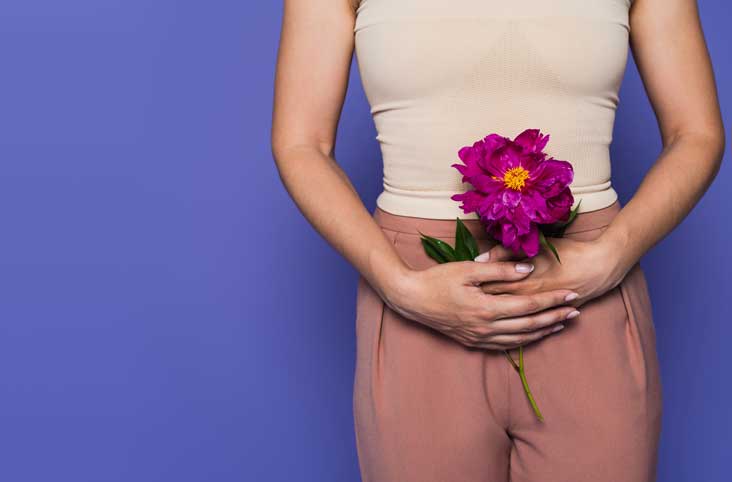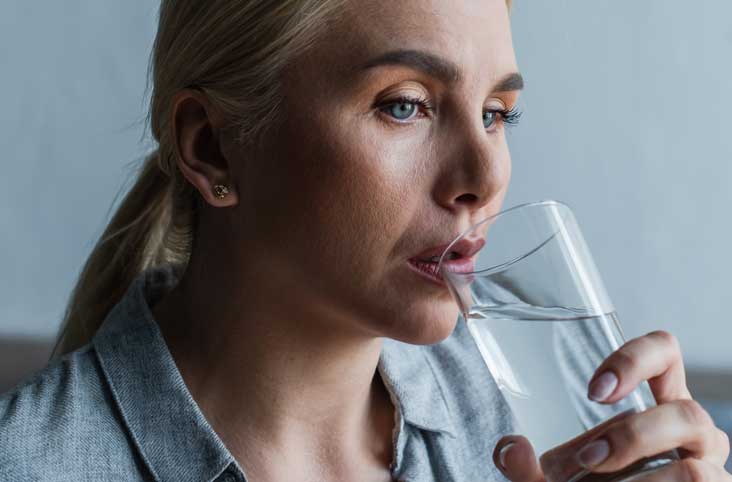What is menopause?
Menopause is the change of life in women – the time when you stop ovulating and having periods. Women are born with a finite number of eggs in their ovaries, when this supply is
depleted, women go through menopause.
Why does menopause affect women?
The cells that nurture egg cells produce the hormones oestrogen and progesterone. These hormones are chemical messengers that have effects in many parts of your body, from your brain to your muscles. Prior to ovulation, these cells produce high levels of oestrogen and after ovulation they produce progesterone. When a woman stops ovulating, there are no more of these cells, so the levels of these hormones dramatically decrease, which leads to the symptoms of menopause.
When does menopause occur?
The age that women will go through menopause will vary, generally women go through menopause at some time between the ages of 45 and 55 with the average age is 51. It can occur earlier as well, if it occurs before the age of 45, then it is known as Premature Ovarian Insufficiency or POI. If you suspect you have this condition, you need to book an
appointment with your GP to get a proper diagnosis. Menopause can also occur after 55.
What are the symptoms of menopause?
The symptoms experienced by women going through menopause vary; they include:
- Approximately 80% of women experience hot flushes and / or night sweats.
- About 20% of women experience trouble with changes in mood and or emotions.
- Headaches or migraines.
- Difficulty sleeping.
- Forgetfulness.
- Sore breasts.
- Urinary problems.
- Vaginal dryness.
- Sore joints.
- Itchy or dry skin.
- Tiredness.
- Boating.
How long does menopause last?
There are a few different stages in Menopause: Perimenopause, menopause and postmenopause.
Perimenopause
This is the first stage that occurs before menopause. It happens when your body is beginning to run out of eggs. As this happens, your periods may become irregular and levels of oestrogen may fluctuate considerably, which leads to many of the symptoms experienced in menopause. Sometimes these symptoms may be even more severe in perimenopause. Perimenopause usually lasts for 4-6 years, but can last as long as 10 years.
Menopause
Menopause starts at the start of the last period. It is generally accepted that you have gone through menopause if you have not had a period or any spotting for 12 months.
Postmenopause
The period after menopause when the level of oestrogen in your body drops to its lowest point. This usually takes 2 – 4 years, but the symptoms can draw out for much longer.
Do all women experience symptoms of menopause?
No. Not all women experience symptoms, around 20% of women experience no symptoms, about 60% of women feel mild to moderate symptoms while 20% of women experience severe symptoms.
What can help alleviate menopause symptoms?
There are many avenues of help available depending on what symptoms you are experiencing. These range from Menopausal Hormone Therapy or MHP (formerly known as Hormone Replacement Therapy or HRT), psychological counselling, cognitive and/or behavioural therapy and referrals to specialists for issues such as urologists for bladder problems.
There are also many things that you can do to minimise the symptoms or likelihood of developing symptoms, these include:
- For hot flushes, it has been found that reducing your intake of spicy foods, caffeine, and alcohol can help reduce the severity of hot flushes and night sweats.
- Use moisturisers to help with dry or itchy skin, including the use of oil or lubricants for sex.
- Do pelvic floor exercises to help bladder control.
- Lose weight if you are overweight.
- Exercise regularly as this helps reduce stress and improves your mood.
- Maintain a good social life, as this helps with moods and emotions.
- Stimulate your brain by doing mental exercises such as Sudoku, crosswords and playing games like chess.
To discuss how to best manage your symptoms, book an appointment to see your GP.


